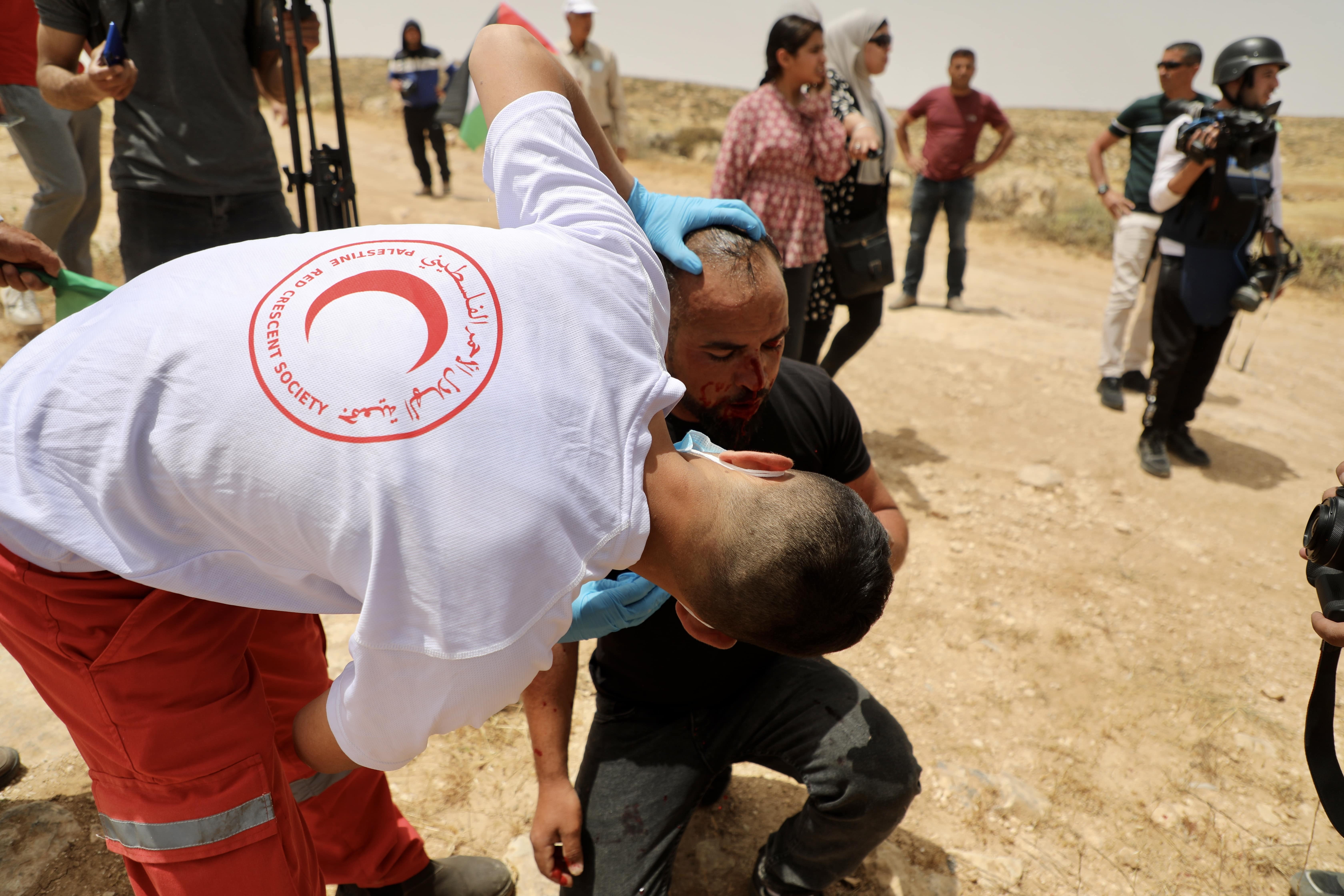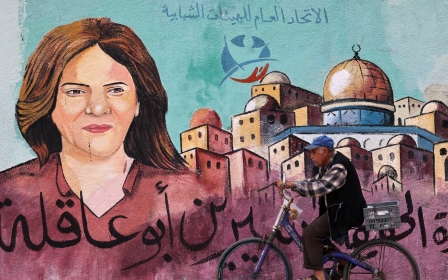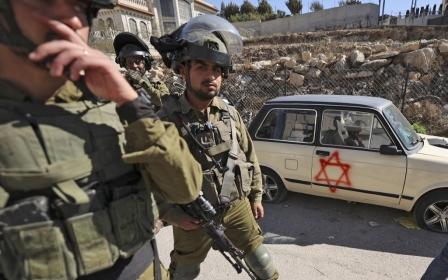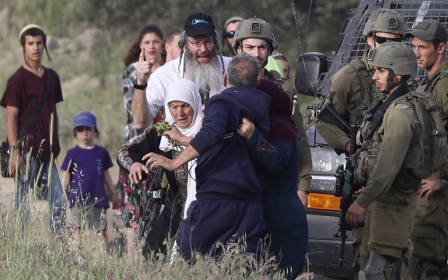Israeli settlers forcibly seize Palestinian-owned building in Hebron
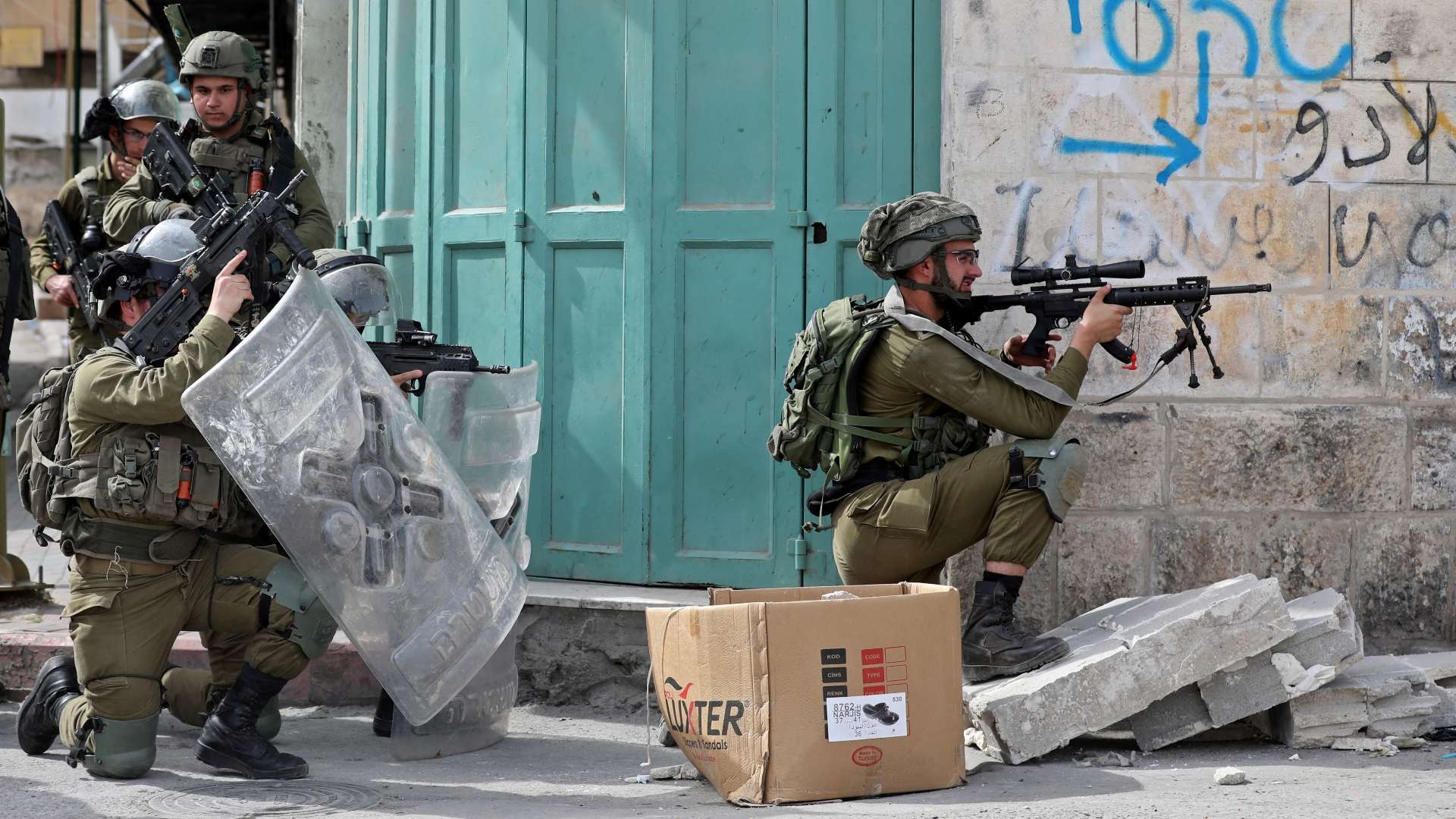
Dozens of Israeli settlers took over a Palestinian building in the Old City of Hebron on Friday, while flanked by Israeli soldiers.
Issa Amro, director of the Hebron-based Youth Against Settlements activist group, tweeted a video of the scene which showed settlers carrying their belongings, including mattresses and suitcases, as they stormed the three-storey building.
The Wafa news agency reported that the building belonged to local Palestinian resident Walid al-Ja'abri, and it was undergoing renovations at the time that the Israeli settlers stormed in.
Local sources also said that Israeli soldiers surrounded the building to prevent Palestinian residents from approaching the settlers.
New MEE newsletter: Jerusalem Dispatch
Sign up to get the latest insights and analysis on Israel-Palestine, alongside Turkey Unpacked and other MEE newsletters
Around 700 Israeli settlers live in settlements in the heart of Hebron, where they are guarded by thousands of Israeli soldiers and police. Hundreds of Palestinian homes have meanwhile been left empty due to restrictions favouring settlers.
Hebron is home to more than 200,000 Palestinians.
Peace Now, an NGO that monitors Israeli settlement expansion, said that "it doesn't matter if [the building] was legally purchased" by the settlers but rather if Defence Minister Benny Gantz authorised their entry, according to the Jerusalem Post.
Settlers attack demonstrators
Elsewhere on Friday, settlers attacked journalists and protesters who staged a demonstration in Masafer Yatta near Hebron against the imminent eviction of more than 1,000 Palestinians from the rural area.
Around 200 people, including left-wing Israeli activists, were marching towards the demonstration's meeting point when masked settlers hurled stones at them and beat some with sharp objects, according to the Israeli newspaper Haaretz.
At least five people were wounded, including one taken to hospital, the news outlet said.
Journalists covering the march were also attacked, The New Arab said, while their equipment and vehicles were damaged.
The army later fired stun grenades and dispersed the protest.
The violence in Masafer Yatta and the move to occupy the Palestinian home in Hebron comes a day after Israel advanced plans to build 4,427 housing units for settlers in the occupied West Bank.
The high planning committee of Israel's civil administration - an authority that runs the occupied West Bank - approved 2,791 units and initial endorsements for another 1,636, according to Peace Now.
It also comes in the aftermath of the killing of Palestinian-American journalist Shireen Abu Akleh, who was shot and killed by Israeli forces during a raid in the village of Jenin in the occupied West Bank.
Nearly 700,000 Israelis live in illegal settlements in the West Bank and East Jerusalem, which Israel illegally occupied during the 1967 war.
A report released last year by the Israeli human rights group B'tselem found that the Israeli government has been using "settler violence" as a major tool in its attempt to seize Palestinian land in the occupied West Bank.
"The state fully supports and assists these acts of violence, and its agents sometimes participate in them directly," the organisation said in its report.
"As such, settler violence is a form of government policy, aided and abetted by official state authorities with their active participation."
Middle East Eye delivers independent and unrivalled coverage and analysis of the Middle East, North Africa and beyond. To learn more about republishing this content and the associated fees, please fill out this form. More about MEE can be found here.


